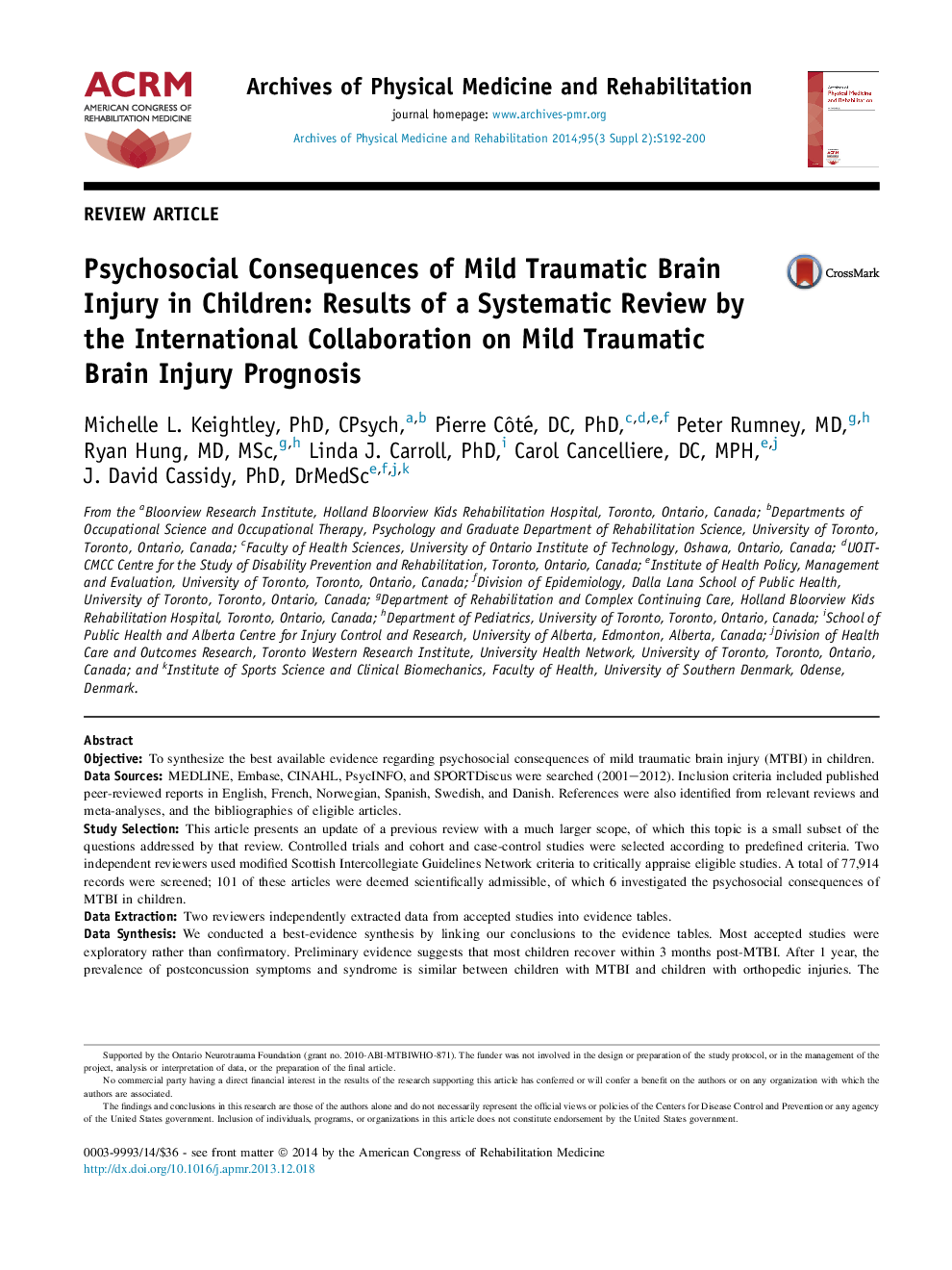| Article ID | Journal | Published Year | Pages | File Type |
|---|---|---|---|---|
| 3448402 | Archives of Physical Medicine and Rehabilitation | 2014 | 9 Pages |
ObjectiveTo synthesize the best available evidence regarding psychosocial consequences of mild traumatic brain injury (MTBI) in children.Data SourcesMEDLINE, Embase, CINAHL, PsycINFO, and SPORTDiscus were searched (2001–2012). Inclusion criteria included published peer-reviewed reports in English, French, Norwegian, Spanish, Swedish, and Danish. References were also identified from relevant reviews and meta-analyses, and the bibliographies of eligible articles.Study SelectionThis article presents an update of a previous review with a much larger scope, of which this topic is a small subset of the questions addressed by that review. Controlled trials and cohort and case-control studies were selected according to predefined criteria. Two independent reviewers used modified Scottish Intercollegiate Guidelines Network criteria to critically appraise eligible studies. A total of 77,914 records were screened; 101 of these articles were deemed scientifically admissible, of which 6 investigated the psychosocial consequences of MTBI in children.Data ExtractionTwo reviewers independently extracted data from accepted studies into evidence tables.Data SynthesisWe conducted a best-evidence synthesis by linking our conclusions to the evidence tables. Most accepted studies were exploratory rather than confirmatory. Preliminary evidence suggests that most children recover within 3 months post-MTBI. After 1 year, the prevalence of postconcussion symptoms and syndrome is similar between children with MTBI and children with orthopedic injuries. The functional status of children with MTBI improves over a 30-month follow-up period, but further research is needed to investigate the possibility that children with MTBI experience greater rates of psychiatric illness during the 3 years after their injury.ConclusionsThe prognosis of MTBI is favorable in children. Most appear to recover functionally from a physical and psychological perspective. However, future research should investigate the risk for psychiatric illness.
